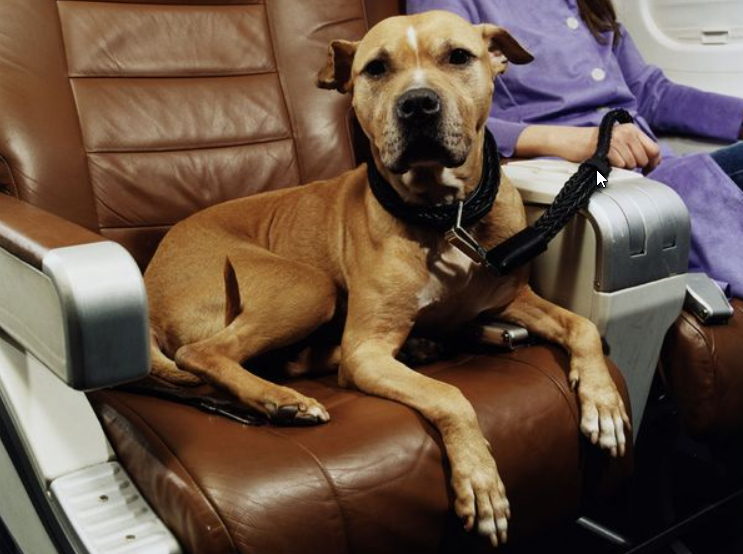A newsy item this week, where I live, was about a Vancouver Island family that spoke with the media (CBC) after they couldn’t fly with their son’s service dog. This story struck me as all too familiar. Communications gone awry. If ‘communications’ is about getting on the same page, the participants in this conflict weren’t.
Backstory
A Vancouver Island family has 8 year-old autistic boy. The boy has a certified service dog as an assist. The family booked a vacation trip to Mexico via WestJet, a major Canadian airlines. They were planning to take the service dog. Days prior to departure the family discovered from WestJet that they couldn’t take their dog on the plane as they had hoped for. They reluctantly made the trip without the dog. This week they went public with their experience. The family’s travails are documented further, here.
This family-airlines conflict is a great example of how seemingly benign communications can lead to unintended consequences.
Analyzing WestJet’s communications around service dogs
Focusing on the corporation (and not the customer), I reviewed (online) WestJet’s service dogs policy. I believe WestJet could tweak their service dogs policy to benefit customers and reduce communication issues around the policy. Of course, communications is typically a two-way street, yet it behooves the corporation to be excellent communicators.
Based on how WestJet words their service dog policy, I can see one or more communication issues happening (as was the case with the Van Isle family). These include issues around:
- Definition of “trained service dog”
- Service dog size
- Flight booking procedure
- Service dog customer checklist
- Alignment with U.S. service dog policies
- Fairness
For each of the above, I explore a WestJet policy statement and the associated communications problems that might arise.
Issue: Definition of “trained service dog”
WestJet policy: “Service dogs must have been trained to do work or perform tasks for the benefit of a qualified individual with a disability. Service dogs must be individually trained by an organization or person specializing in service dog training.”
Potential communication problem: There is no hard definition of what constitutes a “trained service dog”. If the customer’s family member trained the service dog and they were certified by the government in that regards (this is what happened with the BC dog owner) are they not recognized by WestJet as a legitimate service dog trainer? There is no reference to either service dog ‘certification’ or ‘licensing’ on the WestJet service dog info pages.
Issue: Service dog size
WestJet policy: “Be prepared to discuss your dog’s breed, weight, length, height, and width as we use this information to determine the floor space required to accommodate your dog.”
Potential communication problem: There are no measurement guidelines provided by WestJet on their website re: dog size. Dogs are obviously more fluid in shape than carryon baggage, yet some guidelines would help the customer and minimize subjective rules/policy interpretation on the part of the airline agent.
Issue: Flight booking procedure
WestJet policy: “To ensure adequate notice we recommend that you request to travel with your service dog as soon as possible at least 48 hours before your flight departs. This helps us to arrange appropriate seating for you and your service dog and to greatly reduce the chances that you will be delayed or denied travel.”
Potential communication problem: The family submitted a request in advance of 48 hours, yet were unsuccessful in getting their dog on the plane. Fair enough, yet why not have an option on the flight booking page for the customer to alert WestJet that they will be travelling with a service dog? Why not get the communication ball rolling sooner than later?
Issue: Service dog customer checklist
WestJet policy: WestJet provides a dedicated webpage to service dogs. The information is accessed thru various drop-down lists.
Potential communication problem: There is no overarching WestJet procedure or checklist for customers with service dogs. A simple visual checklist or step-by-step procedure would benefit the customer. They wouldn’t have to piece the puzzle together.
Issue: Alignment with U.S. service dog policies
WestJet policy: “We have changed our service dog program following significant changes to the U.S. Department of Transportation’s (DOT) rules on this topic. Starting on August 5, 2021, emotional support animals will not be accepted for travel in any cabin.”
Potential communication problem: How are service dog and emotional support dog different? Is there information from U.S. policy that could/should also be available on the WestJet website and would assist the customer? WestJet provides no link to U.S. service dog policy, for the adventurous customer.
Issue: Fairness
WestJet policy: “We recommend reviewing this entire (service dogs) web page before booking travel.”
Potential communication problem: This warning may not be enough if the information presented to the customer is incomplete or ambiguous or disjointed.
Miscommunications is at the source of the majority of civil disputes
I assume WestJet’s communications shortfalls were unintentional and not by design e.g., to hedge their bets around flight bookings and profitability.
In the many years I worked as a BC provincial court mediator, I observed that at least half of the civil disputes I mediated were the outcome of poor miscommunications.
And, I offer that that communications negligence is the source of much of our interpersonal conflict, writ large. Do you agree?


Speak Your Mind